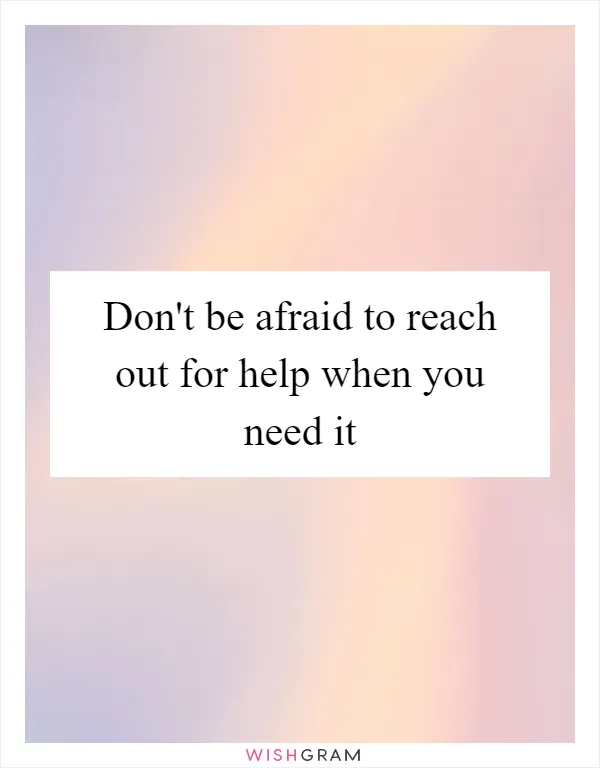Don't be afraid to reach out for help when you need it
Sometimes, life can feel overwhelming. We all face challenges and difficulties that can leave us feeling lost or alone. During these tough times, it's important to remember that reaching out for help is not a sign of weakness, but rather a courageous act of self-care. Whether you're struggling with your mental health, facing a personal crisis, or simply feeling overwhelmed, don't be afraid to ask for support when you need it most.
It's natural to feel hesitant about reaching out for help. You might worry about burdening others or fear being judged. However, it's crucial to remember that seeking assistance is a strength, not a weakness. We all need support from time to time, and there are people in your life who genuinely care about your well-being. By reaching out, you allow others to offer their guidance, empathy, and understanding.
Remember, you don't have to face your challenges alone. There are numerous resources available to provide the help you need. Start by reaching out to trusted friends or family members who can lend a listening ear or offer advice. Sometimes, simply talking about your struggles can provide immense relief and clarity. Sharing your feelings with someone you trust can help you gain a fresh perspective and find potential solutions.
If you feel uncomfortable discussing your concerns with those close to you, consider seeking professional help. Mental health professionals, such as therapists or counselors, are trained to provide guidance and support. They can help you navigate through difficult emotions, develop coping strategies, and work towards personal growth. Remember, seeking professional help is a proactive step towards taking care of your mental and emotional well-being.
Additionally, helplines and support groups are available for various issues, such as mental health, addiction, or domestic violence. These organizations offer a safe and confidential space to share your experiences and receive guidance from trained volunteers or professionals. They can provide valuable resources, advice, and a listening ear when you need it most.
It's important to recognize that asking for help is not a one-time event. It's an ongoing process that requires self-awareness and self-compassion. As you navigate through life's challenges, remember to check in with yourself regularly. Pay attention to your emotions, thoughts, and behaviors. If you notice a decline in your well-being or feel overwhelmed, don't hesitate to reach out for support.
Lastly, remember that helping others is also a powerful way to receive help when you need it. By offering support to those around you, you create a network of care and
